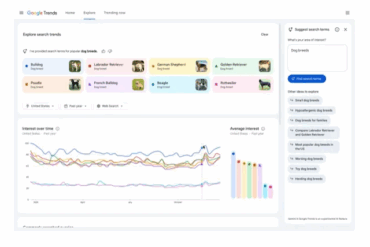By Jason Aten
Apple isn’t just coming for Facebook’s money, it’s coming for its business.
3.1.3(g) Advertising Management Apps: Apps for the sole purpose of allowing advertisers (persons or companies that advertise a product, service, or event) to purchase and manage advertising campaigns across media types (television, outdoor, websites, apps, etc.) do not need to use in-app purchase. These apps are intended for campaign management purposes and do not display the advertisements themselves. Digital purchases for content that is experienced or consumed in an app, including buying advertisements to display in the same app (such as sales of “boosts” for posts in a social media app) must use in-app purchase.
The first part of that paragraph applies to apps that allow you to place ads elsewhere. For example, Facebook has an app dedicated to creating and managing advertising campaigns. Those types of ads are not affected by this change. On the other hand, you can also go into Instagram, for example, and boost a post directly within the app.
If you build a business based on letting people create content and then pay you money to “boost” that content, giving Apple 30 percent of that money is not good news. Before the change, you got to keep 100 percent of the money you charged people because they actually wanted their friends or followers to see their post. Now, Apple is going to get almost a third of that money.
Math is hard, but I think we can all agree that losing a third of the money you charge for a thing is bad for business. Mostly, it’s bad for Meta, which owns Facebook and Instagram. Here’s why:
First, I should say that I have no idea how much of Meta’s overall advertising business is random people or businesses opening the Facebook app and deciding to boost a post, but it’s more than none. (I asked Meta, but the company did not immediately respond to my request for comment.)
Even if it’s only a little bit more than none, it’s still a problem. Apple isn’t offering any new API or underlying technology that makes boosted content a better advertising business. It’s just collecting rent for the privilege, something it has never done before for this type of transaction. In fact, during Apple’s trial with Epic Games, Phil Schiller made a point during his testimony that the company had never taken a share of developer ad revenue.
It’s not like this is a new business. Facebook has allowed boosted posts for years. Meta has already built out its business model and the technology that makes it work, and–now that it’s successful–Apple would like a cut, thank you very much.
This isn’t even the first time this has happened. A few years ago, the Hey email service got into a public fight with Apple when the iPhone maker blocked updates to the Hey app until it added the ability to subscribe within the app.
The fact that Apple is branching out, looking through apps to find new ways to collect money should be a troubling sign for every developer. Meta’s advertising business didn’t become the second-largest advertising platform because of the App Store or iOS. No, it became so large because it turns out that collecting massive amounts of data about your users to target them with ads is very lucrative.
It actually raises an interesting point, which is that Apple has now decided that, as much as it thinks targeted advertising is bad, it’ll tolerate it on iOS as long as it gets some of the profit. It’s hard to stand on the moral high ground of protecting users from the “data industrial complex, built on a foundation of surveillance,” which is a real thing Tim Cook has said publicly, when you’re making a profit off the same “targeted experiences.”
Apple’s services business is its fastest-growing source of revenue, and most of that is App Store commissions. The thing is, people aren’t necessarily downloading more apps or making more transactions, so the company has to find new types of interactions from which it can collect money in order to grow App Store revenue.
Ultimately, however, the biggest problem for Meta isn’t that Apple is coming for some of the money it makes from boosted posts, it’s that Apple appears to be coming for its business. This is just another in a series of changes Apple has made that have the effect of making advertising harder on the iPhone.
In 2021, Apple rolled out iOS 14.5, which included a requirement that developers request permission before they are allowed to track users, known as App Tracking Transparency. Meta has said before that the change resulted in a loss of as much as $10 billion in revenue last year.
While Meta did not respond to my inquiry, it did provide a statement to The Verge saying that “Apple continues to evolve its policies to grow their own business while undercutting others in the digital economy. Apple previously said it didn’t take a share of developer advertising revenue, and now apparently changed its mind. We remain committed to offering small businesses simple ways to run ads and grow their businesses on our apps.”
It’s true that Apple has been actively growing its own advertising business at the same time it’s making it harder for platforms like Facebook/Meta. Apple has also been adding ads in more places, especially in the App Store. If Apple is serious about building a real advertising product, it could pose an existential threat to Facebook’s dominance.
Apple controls the rules and has perfect knowledge of every transaction on its platforms. It has both the technological capability and the financial incentive to grow an advertising business, or at least try. It hasn’t been particularly successful in the past, but if it is, it could be the end of Facebook.
Feature Image Credit: Getty Images





